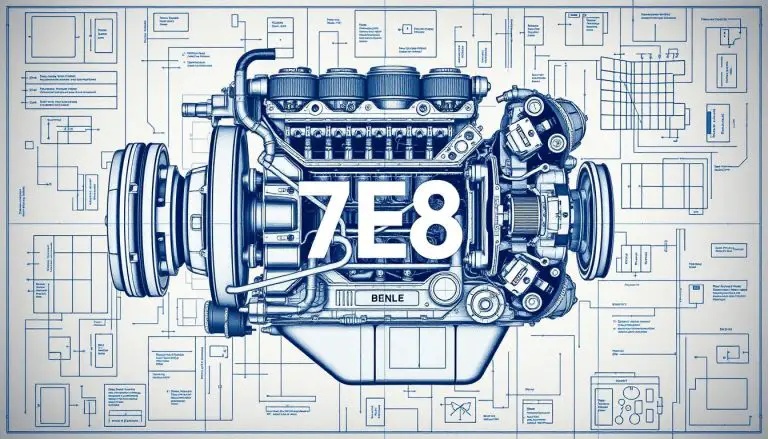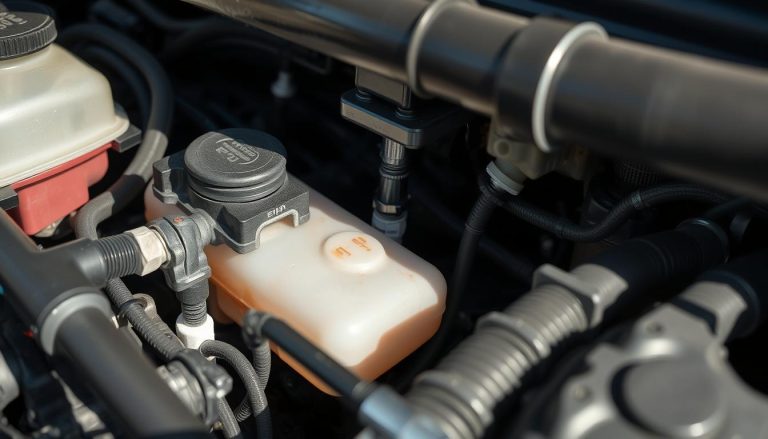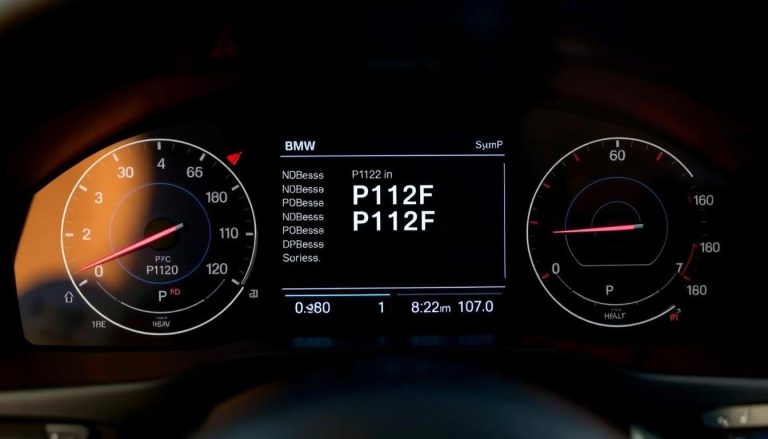If you’ve ever encountered the P0174 code while driving, you know it can be a bit alarming. It signals that your vehicle’s engine is running too lean on bank 2—essentially meaning there’s not enough fuel in the air-fuel mixture for optimal combustion.
Understanding what this code signifies and how it affects your car can save you from potential headaches down the road. We’re here to break down everything you need to know about the P0174 code—from its causes and symptoms to diagnosis and fixes.
What does the P0174 – System Too Lean Bank 2 mean?
The P0174 code indicates a “System Too Lean” condition specifically for bank 2 of your engine. In simpler terms, it means that there’s an insufficient amount of fuel in the air-fuel mixture entering the combustion chamber on that particular side.
Every internal combustion engine has two banks—one for each row of cylinders. When this code appears, it suggests that bank 2 isn’t getting enough fuel compared to what the engine management system expects.
This imbalance can lead to various performance issues, including rough idling and decreased power output. It’s crucial to address this problem promptly, as running too lean can cause overheating and damage over time. Understanding what this code signifies helps you take appropriate action before it escalates into more serious complications.
What are the common symptoms of a P0174 code?
When your vehicle throws a P0174 code, it can reveal several symptoms that signal trouble:
- Poor engine performance. You might experience hesitation during acceleration or a rough idle.
- Fuel efficiency may take a hit as well. If you notice frequent trips to the gas station without increased mileage, this could be linked to the lean condition in Bank 2.
- Check engine light illumination is another common symptom.
- Detonation (spark knock)
- Hesitation/surge on acceleration
What are the common causes of a P0174 code?
Several factors can trigger a P0174 code :
- A vacuum leak. Hoses and gaskets can deteriorate, allowing extra air into the system without additional fuel.
- A malfunctioning mass airflow sensor (MAF). If this sensor fails, it may not measure incoming air accurately, leading to incorrect fuel delivery.
- Dirty or clogged fuel injectors can also contribute to this issue. When they fail to deliver sufficient fuel, it disrupts the balance needed for proper combustion.
- Issues with the exhaust system such as leaks before the oxygen sensors can mislead your vehicle’s computer about its air-fuel mixture, triggering that pesky code.
What are the diagnostic steps for a P0174 code?
To diagnose a P0174 code, start by using an OBD-II scanner. This tool will help confirm the error and provide additional codes that may be present.
Next, check for any vacuum leaks. Inspect hoses and connections thoroughly since even minor leaks can lead to incorrect air-fuel mixtures.
After checking for leaks, examine the mass airflow sensor (MAF). A dirty or faulty MAF can skew readings, contributing to a lean condition.
Inspect fuel delivery components as well. Verify that the fuel pump is functioning correctly and that filters are clear of obstructions.
Don’t forget about exhaust system checks. A malfunctioning catalytic converter could also affect performance metrics leading to this code.
If no issues have been found so far, consider testing engine sensors such as oxygen sensors for accuracy and functionality.
How Serious Is the P0174 Code? Can I continue driving with the P0174 code?
The P0174 code indicates that the engine’s air-fuel mixture is too lean on bank 2. This can lead to poor performance and increased emissions, which isn’t ideal for any vehicle owner.
Driving with this code may not result in immediate breakdowns but it’s not without risks. A lean condition can cause engine misfires or overheating over time, potentially leading to more severe damage.
If you notice decreased acceleration or unusual noises from your engine, it’s wise to address the issue promptly. While you might be able to drive short distances, ongoing use could worsen problems down the line.
Ignoring the P0174 code puts stress on various components like spark plugs and catalytic converters. Addressing it sooner rather than later will save money and headaches in repairs later on.
What are the repair solutions for a P0174 – System Too Lean Bank 2?
Repairing a P0174 code typically involves addressing the underlying causes of the lean condition on Bank 2. Start by checking for vacuum leaks, as even small gaps can disrupt air-fuel mixture balance. Inspect hoses and intake manifold gaskets carefully.
Next, examine the fuel system components. A clogged fuel filter or failing fuel pump could lead to insufficient fuel delivery. Replacing these parts may resolve the issue effectively.
Don’t overlook oxygen sensors either; they play a critical role in monitoring exhaust gases and ensuring optimal air-fuel ratios. If faulty, replacing them is essential.
Ensure your engine management system has no software issues by checking for updates that might improve performance and error reporting capabilities. Addressing these areas will help restore proper function and eliminate the P0174 code from your dashboard.
How long and How much does it cost to diagnose and repair a P0174 code?
The cost to diagnose a P0174 code varies widely. Typically, you can expect to pay between $100 and $200 for a professional diagnostic service. This price often includes scanning the vehicle’s onboard computer and checking for additional trouble codes.
Repair costs can also differ based on the underlying issue. If it turns out that simply cleaning or replacing an air filter resolves the problem, your total could be as low as $50 to $150.
However, if more extensive repairs are needed—like fixing fuel injectors or addressing vacuum leaks—the bill may range from $300 to over $1,000. The complexity of your vehicle’s make and model plays a significant role in this variation.
Labor rates at different shops might impact these figures too. Always get estimates before proceeding with repairs to avoid surprises later on.
How can I avoid a P0174 code?
Regular maintenance is key to preventing the P0174 code. Change your air filter as recommended by your vehicle’s manufacturer. A clean air filter ensures optimal airflow, reducing the chances of a lean condition.
Keep an eye on fuel quality and always use high-quality gasoline. Contaminated or low-quality fuel can cause various issues, including improper combustion.
Inspect vacuum hoses frequently for cracks or leaks. Even small openings can lead to an imbalance in the air-fuel mixture, triggering codes like P0174.
Additionally, check sensors such as the MAF (Mass Air Flow) and O2 (Oxygen) sensors regularly. They play crucial roles in managing engine performance and efficiency.
Consider using a fuel system cleaner periodically to help maintain proper function and prevent build-up that could affect performance over time. Keeping these aspects in check will help you steer clear of potential problems related to this code.
What happens if you ignore a P0174 code?
Ignoring a P0174 code can lead to significant issues over time. When the system is too lean, it means there’s not enough fuel in the air-fuel mixture. This can cause poor engine performance and reduced power.
Long-term neglect may damage critical components like the fuel injectors or oxygen sensors. These parts are essential for efficient engine operation, and replacing them can be costly.
Additionally, driving with this code might trigger further trouble codes, complicating repairs later on. You could also experience decreased fuel efficiency as your vehicle struggles to maintain optimal performance.
Environmental consequences shouldn’t be overlooked either. A malfunctioning emission control system may increase harmful emissions from your car significantly.
Dismissing the P0174 code doesn’t just affect your vehicle; it impacts overall safety and environmental health too. Taking prompt action is always a wiser choice than waiting for problems to escalate.
Is the P0174 code specific to certain car makes or models?
The P0174 code is not limited to specific makes or models. It can appear in a wide range of vehicles, from compact cars to larger SUVs. This universal nature stems from the common design used in modern fuel injection systems.
However, certain brands may experience this issue more frequently due to their engine configurations or fuel management systems. For instance, some Ford and Honda models have documented cases of P0174 codes appearing more often than others.
It’s important for vehicle owners to be aware that while the code itself is widespread, the underlying causes might differ significantly across various manufacturers. Each model has unique characteristics that influence how lean conditions develop and manifest themselves.
Always check your manufacturer’s service documentation for insights tailored specifically to your vehicle’s architecture and known issues related to the P0174 code.
What other codes may be related to P0174?
When dealing with the P0174 code, it’s essential to be aware of other related codes that might indicate a more extensive issue within your vehicle’s engine management system. Codes such as P0171, which refers to a lean condition on Bank 1, can frequently appear alongside P0174.
Other potential codes include P0135 and P0141, which are associated with oxygen sensor malfunctions. These sensors play a vital role in monitoring air-fuel mixture; their failure may lead to similar symptoms as those experienced with the P0174 code.
Additionally, you might encounter codes like P0300 through P0308 that relate to misfires across various cylinders. A lean condition could cause misfiring due to insufficient fuel reaching the combustion chamber.
Understanding these related error codes can aid in diagnosing underlying issues more effectively and ensuring your vehicle runs smoothly again. It’s crucial always to address any warning lights or trouble codes promptly for optimal performance and longevity of your car’s engine system.


